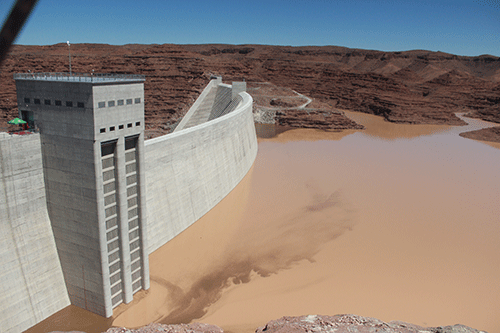The only long-term answer for Namibia’s adequate water solution is to install desalination facilities, as Agriculture Minister Calle Schlettwein forewarned yesterday that climate change is also eating away at the water sector.
“Our job of providing water is challenging because we have to connect it to climate change, which means our current surface water resources – rivers and dams – will become less dependable. Climate change will make us more vulnerable than in the past. Groundwater is our main source of energy,” the minister stated.
Schlettwein was speaking at the end of the year 2023 press briefing, where ministers were giving updates.
Schlettwein said groundwater relies on rain, so the source will also become less reliable.
“We believe our way to all of that in the long term is desalination,” he said.
He revealed the ministry is closing the financial agreement and then construction follows.
Schlettwein earlier this year already issued a warning to NamWater that a lack of adequate rainfall during the just-ended season will most likely result in Windhoek’s feeder dams running dry within the next 12 months.
“Very soon, Windhoek will be under pressure, specifically in 12 months, then the dams will be dry – and we will have to source water far away. We will get some water from Grootfontein in the Otjozondjupa region, and from your boreholes here from the deep aquifers. So, you must keep your eyes on that because we cannot afford Windhoek to run dry,” he said at the time.
Land reform
Along with land management, the ministry’s primary duty is land reform, which aims to reverse historical injustices.
Schlettwein pointed out that given their lower budget, land prices currently make land reform difficult.
“We cannot accelerate efficiently the transition of ownership of land if the budget is this little. We will only be scratching a little bit on the surface. However, we have made good progress with resettlement,” he stated.
Furthermore, he was happy to note that a revival is happening in the sector. The declining trend of agricultural contribution to gross domestic product (GDP) came to an end in 2021.
“The sector has turned back to growth and better contributions to the GDP. That, of course, also implies growth in the job market, in the business and improvement in lifestyles of people in the agricultural sector,” he added.
The minister further said the geopolitical global impact on food prices and food availability is very significant.
Schlettwein was also of the view that an increase in food consumer prices and a reduction of prices for producers is causing a lot of problems.
“We have two losses: one loss is in consumption because of higher prices and the other loss is in producer prices. So, it is very difficult now to instil growth in the sector if that situation is prevailing,” said the concerned minister.
Green hydrogen
At the same occasion, director general of the National Planning Commission Obeth Kandjoze said Namibia’s hydrogen programme is harmonising the country’s steadfast pursuit of economic recovery and inclusive growth.
Thus, he said the project is now receiving the least pushback from society.
Furthermore, Kandjoze stated the planning for the next request for proposals is underway in the green hydrogen space.
“Namibia’s coordinated approach, underpinned by green diplomacy, has yielded over N$2 billion in grant funding of the economy as we speak. So, this is over N$10 billion of concessional loans being made available to us, Namibians,” shared Kandjoze.
SMEs
In efforts to bring small and medium-sized enterprises (SMEs), the government in November 2020, with the Bank of Namibia, launched a Covid-19 SME Loan Scheme, with N$500 million accessible to SMEs through participating banking institutions.
However, since the scheme’s inception, only N$6.4 million or 1.3%, was utilised for this purpose.
This led to the relaunch in February this year. Also yesterday, finance minister Iipumbu Shiimi stated that about 310 SMEs benefitted from the scheme while 73 applications are in the pipeline.
“SMEs are the backbone of any economy and, therefore, if we can help them to survive, first of all, to grow, we can also then add economic activities and job creation,” said Shiimi.
He added that the ministry is also in the process of finalising the establishment of the venture capital fund also to add to support the growth of SMEs.
This is more for SMEs that can afford to service loans but have the potential to grow; thus, they will be able to benefit in the form of equity capital.
– mndjavera@nepc.com.na


